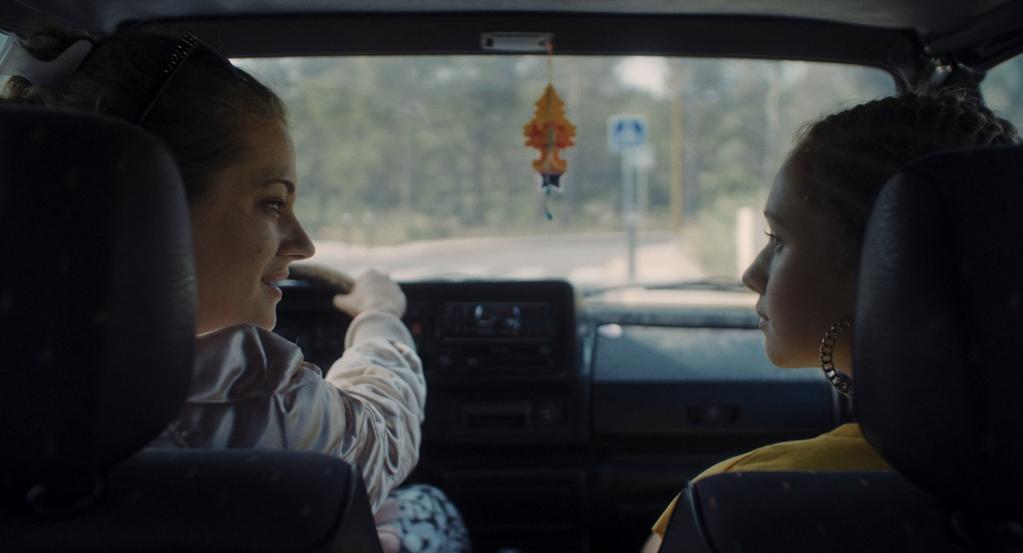Interview with director Berangere McNeese who directed the short film Matriochkas by Belgian and American Director Berangere McNeese tells the story of Anna, starred by Héloïse Volle. She’s a 16-year-old girl who lives with her mother Rebecca, played by Victoire du Bois.
The moment Anna discovers that she’s pregnant, she gets massive support from her mother. Nevertheless, the young girl wants to take her life into her own hands and makes her own decisions. We had the chance to talk with McNeese about what inspired her to talk about this topic, her intention and the hardest parts of the film. You can find our review of the short film “Matriochkas” here.
“There is no such thing as maternal “instinct”: the word does not, in any case, apply to the human species. The mother’s attitude is defined by her total situation and by the way she accepts it.”
How did you come up with the idea or who inspired you to make a short film about teenage pregnancy?
I mainly wanted to talk about a mother/daughter relationship, and how it can take many forms. I think it’s Simone de Beauvoir who said: “There is no such thing as maternal “instinct”: the word does not, in any case, apply to the human species. The mother’s attitude is defined by her total situation and by the way she accepts it.” As I see my friends become mothers, I realize that there are as many different mothers as there are women. And that’s not necessarily the way it’s portrayed in films. But I didn’t want the character of the mother to be guilty of anything, she’s very loving and tries her best, as she is a very young mother, and still behaves like a teenager now and then. That’s where I wanted to film to start. The fact that her daughter becomes pregnant herself was a way to close that cycle, that circle unless the daughter decides to refuse to take the same path her mother took.
The name of the film Matriochkas perfectly fits with the multi-layered story portrayed. What made you decide to go this route?
Matriochkas means « Russian dolls ». Because it really was the subject of the film, I thought the symbol was perfect to show the determinism in which this story takes place. A mother who births a mother who births a mother… and how a young girl may want to break that cycle. It’s quite funny though because the title often makes the audience think the film is going to have some kind of Russian background – it really doesn’t!
You are of Belgian and American descent. How has that affected your vision when it comes down to filmmaking?
I was born in Brussels, Belgium. My mother is Belgian, my father is American, so we spent most of our summer in the US, in Kentucky. I was raised in a mix between both cultures, both languages, and feel very grateful for that. I think my work reflects that mix, and my inspiration comes from both sides of the ocean. Here in Europe, I’ve been told that my work is very « American », which I’m sure an American audience would not necessarily agree with. However I feel like most of us are now in contact with different cultures from all over, whether through film, literature, or music, and we now share a lot more cultural references than we used to. It makes it easier to use those reference to get a message through.
How did you approach casting?
I know I wanted to work with Guillaume Duhesme – whom I had already worked with previously, and Victoire du Bois, as I had seen her work and found her perfect for the part – although it was very different from the part I was offering her. As for the main part of Anna, I auditioned a number of teenagers across France and Belgium, and when I met Heloise, although it was her first audition, it was obvious I wanted to work with her. Everything about her was just sincere, and she was very mature at just 14 years old. I feel so lucky to have met her, as we learned so much on set together.
What was the hardest part when it came to making this film?
I really wanted to bring nuanced, multi-layered characters to life, because that’s what I want to see when I watch a film. As individuals, we can be so many different things, we’re capable of the best for the worst reasons but also the opposite: out of love and wanting the best for someone, we can do them so much harm, by projecting our needs and fears onto them, by not listening. So the challenge was to bring these characters to life in a way that wouldn’t let the audience define them as «good » or « bad », but rather as people who are clumsy, who try.
What do you hope the audience will take after watching Matriochkas.
Exactly that. That no matter which path you take in life, it’s yours and solely yours. That we all try our best, and that decisions are yours to make. And therefore, as a friend, as an ally, the first thing you can do is listen.
Go and see yourself:



